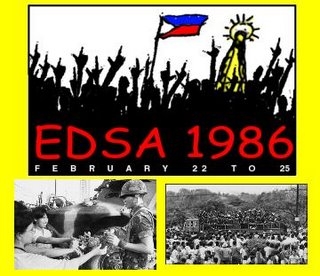Expansion and Innovation (1978-1983)
Learning from the past experiences, NGOs refined their strategies. This effort resulted to qualitative increase in the organized mass movement, as reflected in the formation of more alliances and federations of people organizations. The NGO movement itself experienced tremendous increase in numbers. Human rights advocacy was broadened to include other areas of concern like indigenous people’s rights, ecology/environment problems, and women rights. As a result, more NGOs were organized bannering on respective sectoral issues. This period also witnessed the utilization of new approaches and tools for development like the micromedia, participatory action research, popular education, alternative medicine, and appropriate technology.
Following the increased unpopularity and isolation of the Marcos regime in the international scene, foreign funds flowed freely in support of development work. Many Northern NGOs and funding agencies even went to the extent of setting up their Philippine desk making the country their base of operations in Asia because of the bulk of projects being supported here. Repression in various forms, however, was also intensified.
 |
| Image credit: www.phildhrra-mindanao.org |
With these developments, NGOs have become “key players in the country’s sociopolitical landscape.”
NGO Support to the Surging Mass Movement (1983-1986)
The Aquino assassination in 1983 became a rallying point of growing opposition and outrages which gave birth to the “parliament of the streets.” It was a period of multi- sectoral organizing and alliance building as regional and national federations and alliances of POs were formed with NGO support. Similarly, NGOs strengthened their existing networks and formed new ones to share resources and find security in their numbers amidst continuing military harassment. NGOs’ support to the surging of mass movement culminated in their participation in the Snap Election and the subsequent EDSA Revolt.
 |
| Image credit: cbclawmatters.blogspot.com |
The EDSA event and the wave of political democratization that followed changed the national terrain overnight. Development efforts continued to flourish as NGO works increased significantly amidst the newly won democratic spaces. In acknowledgement of their role in organizing and mobilizing the popular forces before and during the EDSA Revolt, the contribution of NGOs (and POs) to national development was formally recognized.
The 1987 Constitution clearly acknowledged the role of NGOs and POs in a democratic society by including them in its key provisions. In a sense, the role of NGOs was institutionalized, so much so that during the first years of Cory government, many of the appointees came from the NGO community. Even funds from government and international bodies were coursed through the NGOs. As a result, there was a proliferation of NGOs all over the country, covering all possible areas and lines of work. Abad (1990) observed that this made the Philippines one of the most dynamic NGO communities in Asia, if not in the world.
 |
| Image credit: jjcicsi.org |
Traditional politicians, entrepreneurs, and even government units that set up their own NGOs for vested interests, however, took the situation. This was so prevalent that so-called development NGOs were forced to band together to distinguish themselves from pseudo ones. Two new networks were formed during the post EDSA period, namely: the Council for People’s Development (CPD) and the Philippine Support Service Agencies (PHILSSA) in 1986 and 1988, respectively. Others strengthened their unity, stepped up their coordination efforts and responded frequently to unfolding events as networks– and not merely as individual NGOs.
The formation of the Caucus of Development NGOs (CODE NGOs) in 1990 was one of the high points of this trend. In a move unprecedented in the history of the Philippine NGO movement, ten of the largest NGO networks in the country, including the church-based networks and the cooperative sector representing about 1,500 NGOs nationwide, came together in the first ever National Congress of NGOs in December 1991.
No comments:
Post a Comment